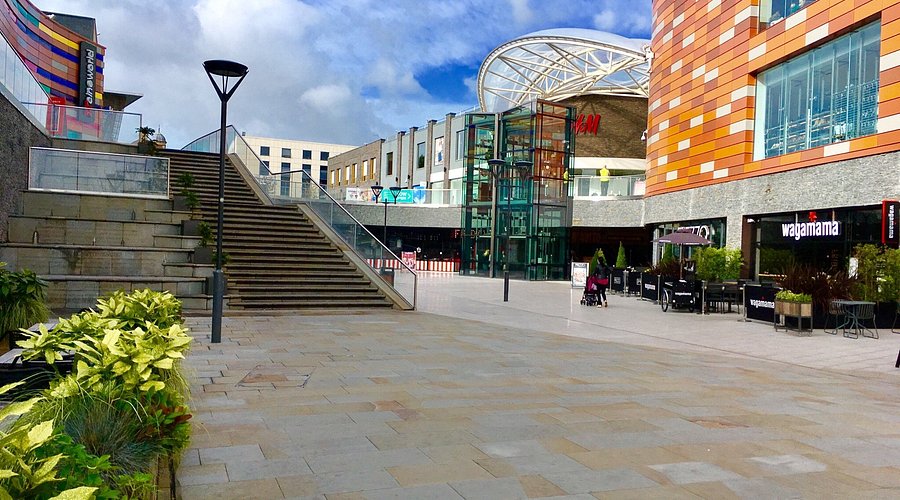Retail Park Insurance: Out-of-Town Shopping Complex Coverage
Out-of-town retail parks represent significant commercial investments requiring specialized insurance protection. From multi-million pound property values to complex tenant relationships, retail park owners and management companies face unique risks that standard commercial policies simply cannot address adequately.
Understanding Retail Park Insurance Needs
Retail parks differ fundamentally from traditional high street properties or single commercial units. These sprawling complexes typically house multiple major retailers, restaurants, and service providers across extensive sites with shared facilities, car parks, and common areas.
The scale and complexity of retail park operations create distinct insurance challenges:
- High property values requiring substantial coverage limits
- Multiple tenant relationships with varying liability exposures
- Extensive public access areas increasing slip, trip, and fall risks
- Complex mechanical and electrical systems serving multiple units
- Significant business interruption potential affecting multiple tenants
Essential Coverage Components
Property Insurance
Retail park property insurance must reflect the true rebuilding costs of these substantial developments. Coverage should include:
- Buildings and structures including tenant fit-outs
- Car parks, roadways, and landscaping
- Shared facilities such as customer toilets and management offices
- External signage and lighting systems
- Underground services and utilities
Public Liability Protection
With thousands of visitors daily, retail parks face significant public liability exposures. Comprehensive coverage should protect against:
- Slip and trip accidents in car parks and walkways
- Falling objects or structural failures
- Vehicle-related incidents in car parks
- Accidents involving shopping trolleys or equipment
- Weather-related hazards such as ice or flooding
Employers Liability
Retail park operators typically employ security staff, maintenance teams, and management personnel. Employers liability insurance protects against workplace injury claims from:
- Security personnel injured during incidents
- Maintenance staff accidents while servicing facilities
- Office-based injuries to management staff
- Contractors working on site improvements
Specialized Retail Park Risks
Tenant Default and Vacancy
Major retailer failures can devastate retail park income streams. Specialized coverage can protect against:
- Loss of rental income from tenant insolvencies
- Costs of re-letting vacant units
- Property improvements required to attract new tenants
- Reduced footfall affecting remaining tenants
Business Interruption
Retail parks generate income through rent, service charges, and percentage turnover agreements. Business interruption coverage should address:
- Lost rental income during property damage repairs
- Increased costs of maintaining partially occupied sites
- Loss of percentage rent from affected retailers
- Additional marketing costs to restore tenant confidence
Environmental Liability
Large retail developments may face environmental challenges including:
- Contamination from previous land use
- Fuel spills in car parks
- Waste management issues
- Storm water runoff problems
Technology and Cyber Risks
Modern retail parks rely heavily on technology systems that create new risk exposures:
Property Management Systems
- CCTV and security monitoring networks
- Car park management and payment systems
- Building management and HVAC controls
- Tenant communication platforms
Cyber Insurance Considerations
- Data breaches affecting tenant or customer information
- Ransomware attacks on property management systems
- Business interruption from technology failures
- Privacy liability for collected personal data
Legal and Regulatory Compliance
Retail park operators must navigate complex legal requirements:
Health and Safety Obligations
- Regular safety inspections of common areas
- Adequate lighting and security measures
- Emergency evacuation procedures
- Accessibility compliance for disabled visitors
Planning and Building Regulations
- Compliance with planning permission conditions
- Building regulation adherence for modifications
- Fire safety regulation compliance
- Environmental impact assessments
Claims Prevention Strategies
Proactive risk management can significantly reduce insurance claims and premiums:
Regular Maintenance Programs
- Scheduled inspections of car parks and walkways
- Prompt repair of damaged surfaces or lighting
- Regular cleaning to prevent slip hazards
- Preventive maintenance of mechanical systems
Security Measures
- Comprehensive CCTV coverage
- Regular security patrols
- Adequate lighting throughout the site
- Emergency communication systems
Tenant Relationship Management
- Clear lease terms regarding insurance responsibilities
- Regular tenant insurance compliance checks
- Coordinated emergency response procedures
- Joint risk assessment initiatives
Working with Specialist Insurers
Retail park insurance requires expertise in commercial property, liability, and business interruption coverage. Key considerations when selecting coverage include:
- Insurers with proven experience in large commercial property risks
- Flexible policy terms accommodating complex tenant arrangements
- Adequate coverage limits reflecting property values and income potential
- Claims handling expertise in commercial property disputes
- Risk management support and loss prevention services
Cost Considerations and Premium Factors
Retail park insurance premiums depend on various factors:
Property Characteristics
- Total property value and rebuilding costs
- Age and construction type of buildings
- Location and local crime rates
- Flood risk and weather exposure
Operational Factors
- Tenant mix and anchor store stability
- Visitor numbers and peak trading periods
- Security measures and risk management practices
- Claims history and loss experience


 0330 127 2333
0330 127 2333
